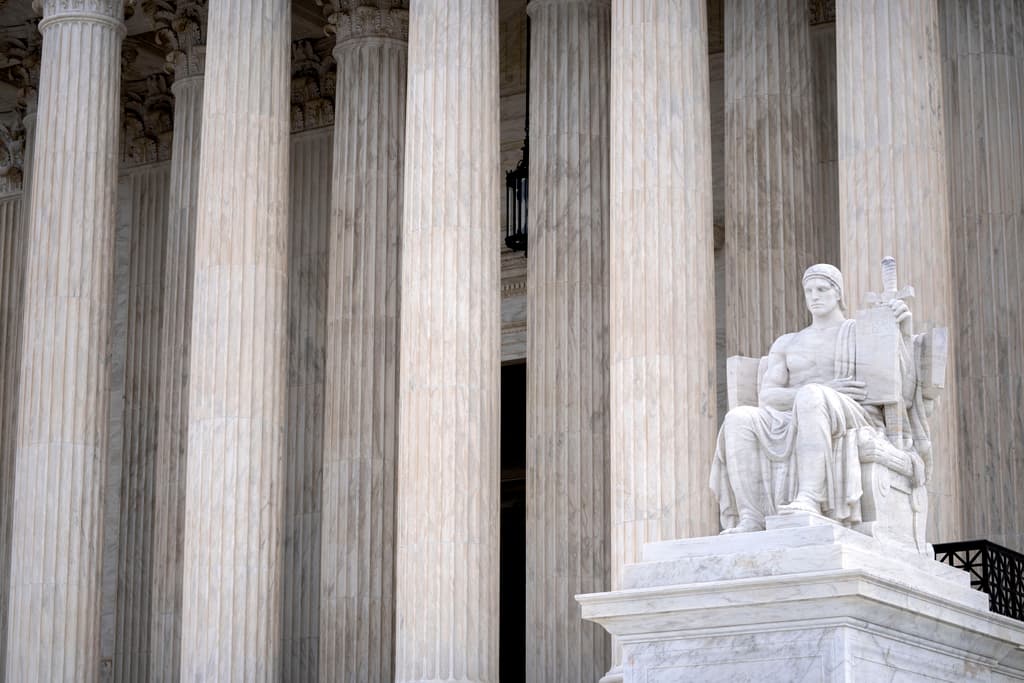Court Tosses Discrimination Lawsuit From Gay Teacher Fired by Catholic School
In an evolving debate over how to balance religious liberty with anti-discrimination laws, the court found that the teacher was ‘a messenger of the faith,’ thus allowing the school to fire him in a ‘ministerial exception.’

In a case that strikes to the core of the debate over how to balance religious freedom with anti-discrimination laws, the Fourth Circuit Court of Appeals held this week that a North Carolina Catholic high school had a right to fire a teacher after he announced his gay marriage.
A longtime teacher at Charlotte Catholic High School, Lonnie Billard, sued for discrimination after he was fired after posting on Facebook in 2014 about his engagement to another man.
“We conclude that because Billard played a vital role as a messenger of CCHS’s faith, he falls under the ministerial exception to Title VII,” a President Obama-appointed federal judge who authored the ruling, Pamela Harris, wrote, reversing a district court ruling in favor of the teacher.
The case raises important questions about the extent to which school employees can be viewed in a ministerial capacity. It’s an issue that the Supreme Court notably weighed in on in 2012 in Hosanna-Tabor Evangelical Lutheran Church and School v. Equal Employment Opportunity Commission, in which the justices ruled that the Civil Rights Act’s ministerial exception — which bans discrimination lawsuits against religious organizations by employees who are deemed “ministers” — applied to a Lutheran teacher who carried out several religious duties as part of her job function.
“The Supreme Court has been crystal clear on this issue: Catholic schools have the freedom to choose teachers who fully support Catholic teaching,” the vice president at Becket Fund for Religious Liberty, Luke Goodrich, who represented the Catholic diocese, tells the New York Sun. “This is a victory for people of all faiths who cherish the freedom to pass on their faith to the next generation.”
The groups representing Mr. Billard called it a “heartbreaking decision” for a teacher who “wanted nothing more than the freedom to perform his duties as an educator without hiding who he is or who he loves.”
“Every worker should be entitled to equal protection under the law, and the Supreme Court held as recently as 2020 that this fundamental freedom extends to LGBTQ workers,” the American Civil Liberties Union, who represented Mr. Billard, said in a statement provided to the Sun. “While today’s decision is narrowly tailored to Mr. Billard and the facts of his employment, it nonetheless threatens to encroach on that principle by widening the loopholes employers may use to fire people like Mr. Billard for openly discriminatory reasons.”
The Fourth Circuit’s ruling noted that the Catholic school is operated by a Roman Catholic Diocese, which sees the schools as central to its mission to “spread the Gospel of Jesus Christ” and said that “religion infuses daily life at the school.”
The school’s mission statement professes that individuals should model Jesus and implement his teachings in “all areas of conduct,” the ruling notes, adding that the school’s “teachers play a critical role in pursuing those missions.”
The school expects teachers to include prayer in each class, go to all-school church services with students, and teach all subjects in a way that is compatible with Catholic thought. While employees aren’t required to be Catholic, the school “prohibits employees from engaging in or advocating for conduct contrary to the moral tenets of the Catholic faith, including the Catholic Church’s rejection of same-sex marriage,” the court notes.
Mr. Billard has worked at the school in different capacities since 2001 — as both a substitute and full-time teacher — teaching drama and English. He also substituted for religion teachers several times, the ruling notes.
The court wrote that its application of the ministerial exception focused on “the function” of Mr. Billard’s position and “its importance to CCHS’s ‘spiritual and pastoral mission.’”
“We conclude that the school entrusted Billard with ‘vital religious duties,’ making him a ‘messenger’ of its faith and placing him within the ministerial exception,” the court wrote.
The Fourth Circuit drew heavily on the Supreme Court’s decision in Hosanna-Tabor, which laid out four factors to help assess whether an employee qualifies as a “minister” for the purpose of the exemption.
One of the factors in Hosanna-Tabor, the Fourth Circuit notes, had to do with the teacher’s “job duties,” which included teaching all types of classes, accompanying students to church services, and leading devotionals. The court concluded that those types of duties are an important part of the Church carrying out its mission and thus do implicate a religious ministerial exception.
“The ministerial exception remains just that — an exception — and each case must be judged on its own facts to determine whether a ‘particular position’ falls within the exception’s scope,” the Fourth Circuit concluded. “But when the exception does apply, it unambiguously commands that we ‘stay out.’”

